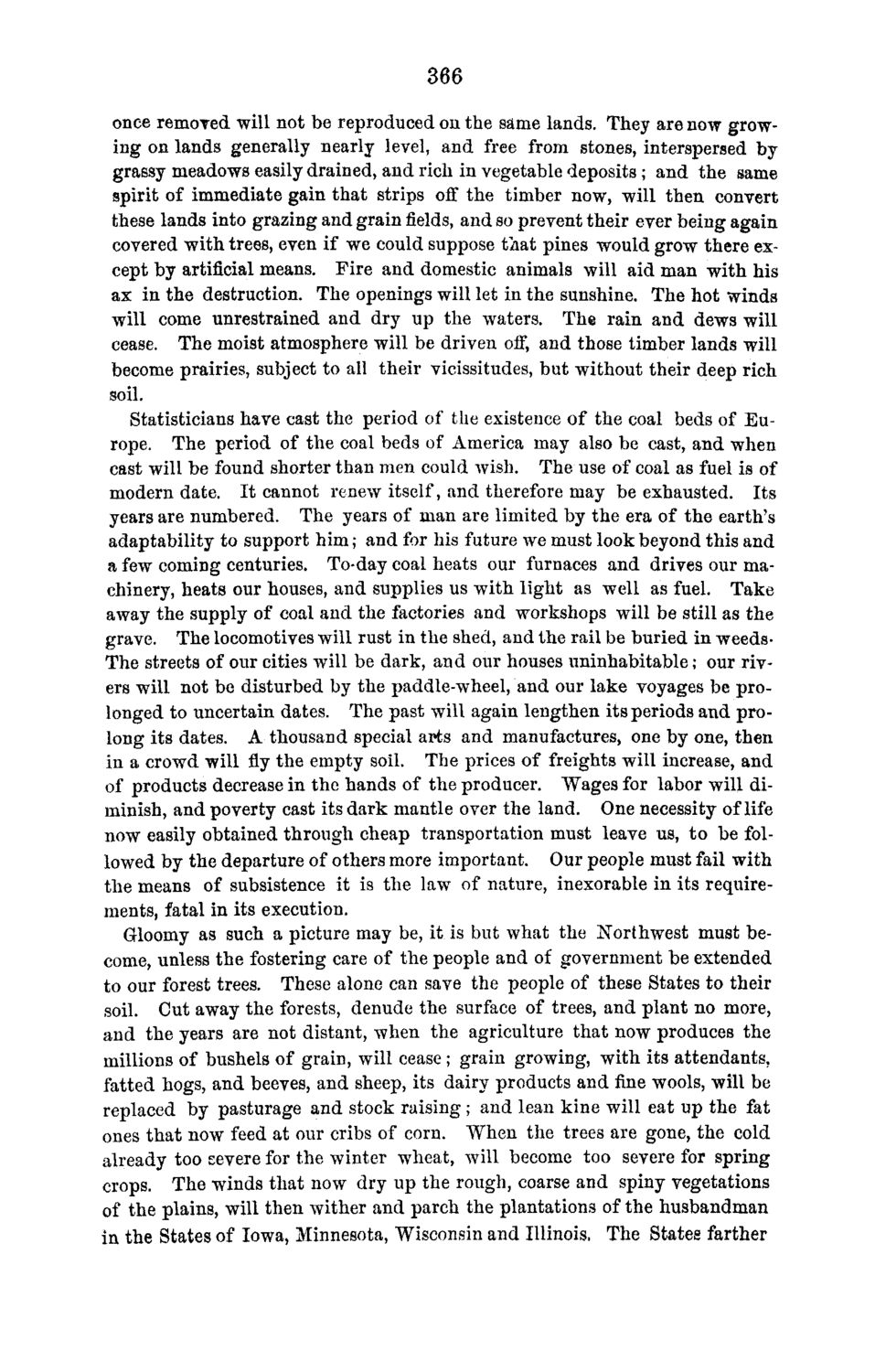| |
| |
Caption: Board of Trustees Minutes - 1870
This is a reduced-resolution page image for fast online browsing.

EXTRACTED TEXT FROM PAGE:
366 once remoTed will not be reproduced on the same lands. They are now growing on lands generally nearly level, and free from stones, interspersed by grassy meadows easily drained, and rich in vegetable deposits; and the same spirit of immediate gain that strips off the timber now, will then convert these lands into grazing and grain fields, and so prevent their ever being again covered with trees, even if we could suppose that pines would grow there except by artificial means. Fire and domestic animals will aid man with his ax in the destruction. The openings will let in the sunshine. The hot winds will come unrestrained and dry up the waters. The rain and dews will cease. The moist atmosphere will be driven off, and those timber lands will become prairies, subject to all their vicissitudes, but without their deep rich soil. Statisticians have cast the period of the existence of the coal beds of Europe. The period of the coal beds of America may also be cast, and when cast will be found shorter than men could wish. The use of coal as fuel is of modern date. It cannot renew itself, and therefore may be exhausted. Its years are numbered. The years of man are limited by the era of the earth's adaptability to support him; and for his future we must look beyond this and a few coming centuries. To-day coal heats our furnaces and drives our machinery, heats our houses, and supplies us with light as well as fuel. Take away the supply of coal and the factories and workshops will be still as the grave. The locomotives will rust in the shed, and the rail be buried in weedsThe streets of our cities will be dark, and our houses uninhabitable; our rivers will not be disturbed by the paddle-wheel, and our lake voyages be prolonged to uncertain dates. The past will again lengthen its periods and prolong its dates. A thousand special arts and manufactures, one by one, then in a crowd will fly the empty soil. The prices of freights will increase, and of products decrease in the hands of the producer. Wages for labor will diminish, and poverty cast its dark mantle over the land. One necessity of life now easily obtained through cheap transportation must leave us, to be followed by the departure of others more important. Our people must fail with the means of subsistence it is the law of nature, inexorable in its requirements, fatal in its execution. Gloomy as such a picture may be, it is but what the Northwest must become, unless the fostering care of the people and of government be extended to our forest trees. These alone can save the people of these States to their soil. Cut away the forests, denude the surface of trees, and plant no more, and the years are not distant, when the agriculture that now produces the millions of bushels of grain, will cease; grain growing, with its attendants, fatted hogs, and beeves, and sheep, its dairy products and fine wools, will be replaced by pasturage and stock raising ; and lean kine will eat up the fat ones that now feed at our cribs of corn. When the trees are gone, the cold already too severe for the winter wheat, will become too severe for spring crops. The winds that now dry up the rough, coarse and spiny vegetations of the plains, will then wither and parch the plantations of the husbandman in the States of Iowa, Minnesota, Wisconsin and Illinois, The States farther
| |